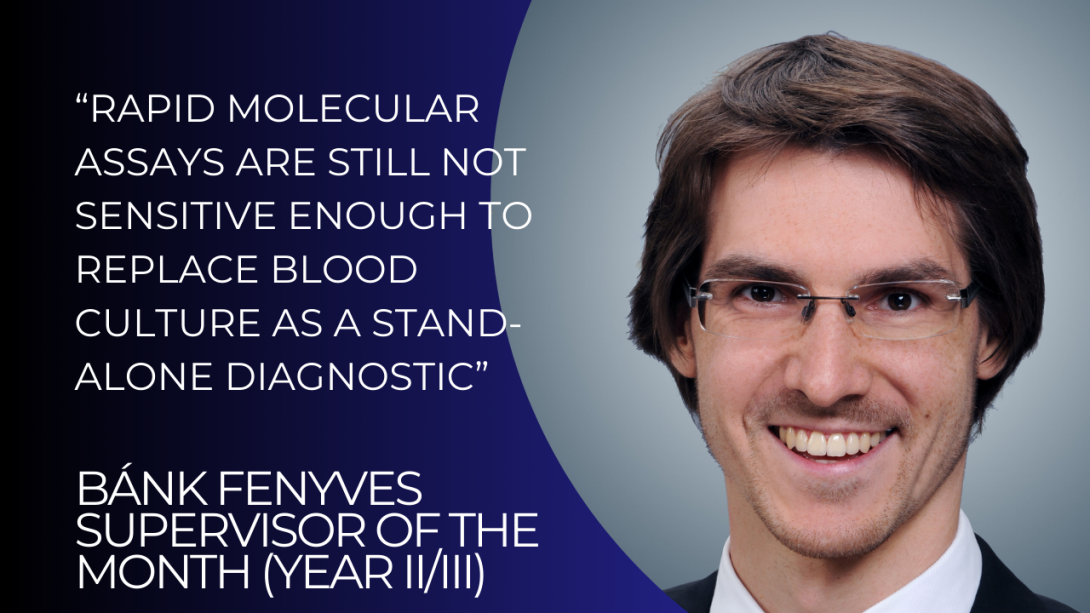
He has been instrumental in mentoring his student, and leading her to a publication in a D1 journal. Their project, which investigated the efficacy of rapid molecular assays in diagnosing bloodstream infections, showcases his commitment to advance research and education. In December, Bánk Fenyves was named Supervisor of the Month (Year 2/3) at the Centre for Translational Medicine.
Dr. Bánk Fenyves, the newly appointed Head of the Department of Emergency Medicine at Semmelweis University, has long considered it important to involve young clinicians in research. His Ph.D. students are all doing research in the field of emergency medicine as resident physicians, and one of them is doing it within the CTM program. „Gabriella Rapszky is a part-time resident and my first student at the Centre for Translational Medicine. Gabriella is a third-year PhD student and she has already passed her complex exam. Alongside her, I have two other Ph.D. students in our own department, and I am also a co-supervisor for a student in the Department of Molecular Biology.”
In the first year of her Ph.D. training, Dr. Fenyves worked very closely with Gabriella, both in research and at the clinic. “This means that I attended almost every group meeting at CTM in the first semester, and later on, I also tried to join the meetings frequently. After the first year, Gabriella started researching more and more independently, with a lot of support from the methodological experts and statisticians at CTM. We had weekly or biweekly meetings to discuss the work. We involved an international co-author in our research from Harvard Medical School, Boston, where I had previously done research, and we also had occasional meetings with him.”
Dr. Rapszky's research topic is related to serious infections, especially sepsis. In her first project, she investigated the effectiveness of rapid molecular assays in the diagnosis of bloodstream infections. It was a huge piece of work, and her research was published in eClinicalMedicine, which is a D1 journal, part of The Lancet family. The study showed that rapid molecular assays are still not sensitive enough to replace blood culture as a stand-alone diagnostic. However, they may be valuable as an adjunct test to increase overall detection rates of pathogens.
(Szabó Emese)